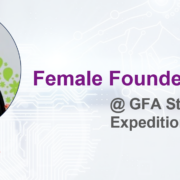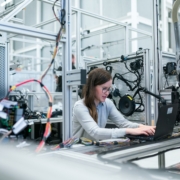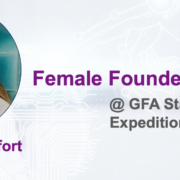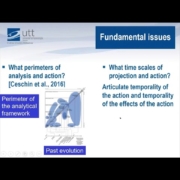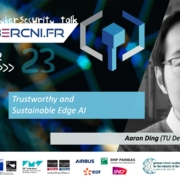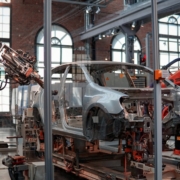On Wed, Oct 26th, 2022, 2pm CET, Aaron Ding (TU Delft, Netherlands), will talk about “Trustworthy and Sustainable Edge AI“. You are cordially invited to join the free live stream on youtube and LinkedIn! Please share the link https://talk.cybercni.fr/23 with your interested friends!
Trailer: https://youtu.be/H4kImH__DpY
LinkedIN Event: https://www.linkedin.com/video/event/urn:li:ugcPost:6990061761919868928/
Facebook Event: https://fb.me/e/24L973TCJ
Youtube: https://youtu.be/qzBS2dNN-yc
Stream redirect (for every edition): https://TALK.cyberCNI.fr/stream
Newsletter with invitations: Subscription on https://TALK.cyberCNI.fr
Abstract
Despite of promising impact, Edge AI is facing two major challenges for its large scale deployment: trustworthiness and sustainability.
On trustworthiness, Edge AI benefits from its close proximity to the end-devices and user generated data. However, due to the distributed deployment and deep penetration into personal context, the safety and perceived trustworthiness for Edge AI services raise concerns among several stakeholders (e.g., end users, public sectors, ISP). To achieve trustworthy Edge AI, critical building blocks are needed for ensuring transparency, fairness and robustness, especially for its training and deployment in decentralized, uncontrolled environments. The trustworthiness of Edge AI is a stepping stone, on which the promise of Edge AI can be built.
Meanwhile, being a critical goal of sustainability, the energy consumption of Edge AI needs to be optimized. The energy efficiency is crucial for embedding Edge AI to our infrastructures (e.g., road side units, micro base stations) in order to sustainably support advanced autonomous driving and Extended Reality (XR) services in the years to come. Across the pipeline of data acquisition, transfer, computation, and storage, there exists the possibility for Edge AI to trade off accuracy to less power and less time consumed. For instance, noisy inputs from numerous sensors can be selectively processed and transferred in order to save energy. This new dimension to the optimization design can pave the way towards a sustainable deployment of Edge AI.
Watch the trailer here.
Aaron Ding
Aaron Ding is leading the Cyber-Physical Intelligence (CPI) Lab as tenured Associate Professor of Edge AI at TU Delft. He has been awarded EU research grants (€5M+) as Consortium Director and PI. With over 15 years of R&D experience across EU, UK and USA, he has worked at TU Munich with Jörg Ott, at Columbia University with Henning Schulzrinne, at University of Cambridge with Jon Crowcroft. His research focuses on edge computing, edge AI, and data-driven IoT services. Being an active member of ACM, IEEE and IETF, he is the founder of ACM EdgeSys, Associate Editor for ACM TIOT and IEEE OJ-ITS. For contributions to mobile edge computing, his research has received best paper awards and recognition from ACM SIGCOMM, ACM EdgeSys, ACM SenSys CCIoT, and IEEE INFOCOM. Details of his projects and publications can be found on site: https://homepage.tudelft.nl/8e79t/
TU Delft, Netherlands
Founded in 1842, Delft University of Technology (TU Delft) is the oldest, largest, and most comprehensive university of technology in the Netherlands and globally ranked top 10 on the 2022 QS World University Rankings of Engineering & Technology. TU Delft collaborates with a wide network of educational, industrial, and governmental partners. It is a member of university federations including the IDEA League, CESAER, UNITECH International and 4TU.
Talk.cybercni.fr
The Cyber CNI Lecture Series is a free monthly event that typically takes place on the last Wednesday of the month from 2pm to 3h30pm CET.
The event consists of a 45-minute expert presentation followed by a 45-minute discussion.
The Cyber CNI Speaker series aims to raise awareness and understanding of cyber security issues among all audiences. It aims to enable an ongoing dialogue between experts from industry and academia and the general public (citizens, families, small and large businesses, public organizations, etc.). All of us are concerned.
The events are broadcast live on Youtube (https://talk.cybercni.fr/) and LinkedIn, allowing worldwide remote participation – including a tool to participate in the discussion.
You can add the event calendar via ICS, webcal, HTML.
The COVID-19 pandemic has shown all of us the benefits of information technology. It allows us to work at a distance, to live at a distance, and most importantly, to keep in touch at a distance – with younger and older people, those closest to us, and even make new contacts.
Our society relies more and more on information and operational technologies. Examples include water, energy, heat and cooling supply, communications, healthcare, production and processing of goods, transportation, national security, banking, research and education, and food production.
What all these areas have in common is that they make intensive use of networked distributed computer systems. These systems can be attacked in many ways. This is no longer just a problem for computer “pros” because computer systems are essential to all of us. The effects of “cyber-attacks” range from power outages to the collapse of the health care or banking sectors.
Program and registration: https://talk.cybercni.fr/

